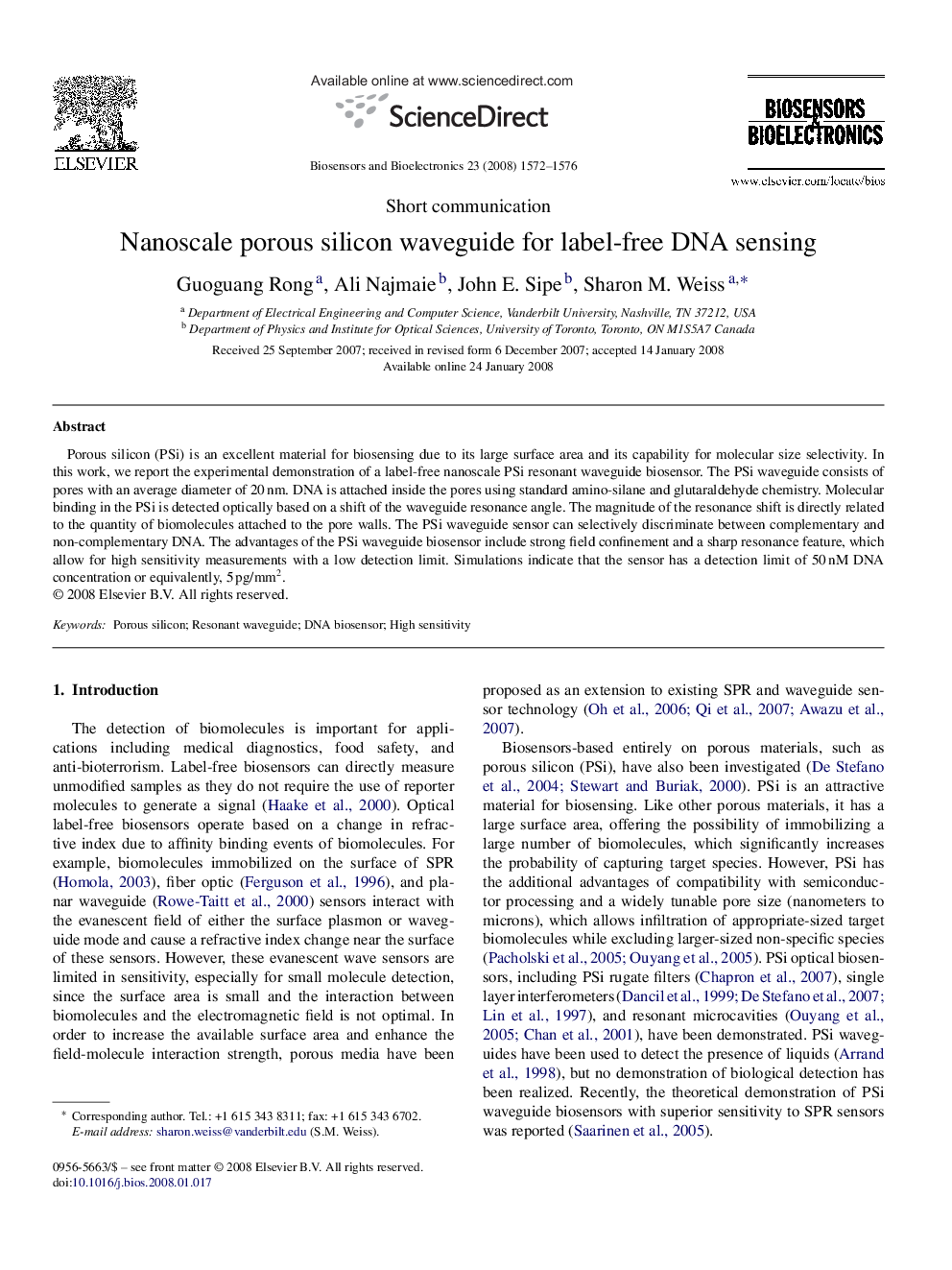| Article ID | Journal | Published Year | Pages | File Type |
|---|---|---|---|---|
| 869310 | Biosensors and Bioelectronics | 2008 | 5 Pages |
Porous silicon (PSi) is an excellent material for biosensing due to its large surface area and its capability for molecular size selectivity. In this work, we report the experimental demonstration of a label-free nanoscale PSi resonant waveguide biosensor. The PSi waveguide consists of pores with an average diameter of 20 nm. DNA is attached inside the pores using standard amino-silane and glutaraldehyde chemistry. Molecular binding in the PSi is detected optically based on a shift of the waveguide resonance angle. The magnitude of the resonance shift is directly related to the quantity of biomolecules attached to the pore walls. The PSi waveguide sensor can selectively discriminate between complementary and non-complementary DNA. The advantages of the PSi waveguide biosensor include strong field confinement and a sharp resonance feature, which allow for high sensitivity measurements with a low detection limit. Simulations indicate that the sensor has a detection limit of 50 nM DNA concentration or equivalently, 5 pg/mm2.
